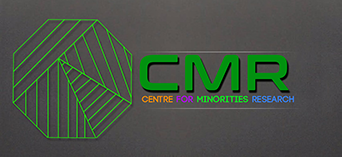Minority Languages and their Reception in Germany
Aimée Capraro, an undergraduate student of German, discusses the place of minority languages in Germany with a special focus on the linguistic varieties spoken by people of Turkish descent in urban areas in Germany and social attitudes towards them. In this episode, she breaks these varieties down from a linguistic standpoint before examining their cultural and political significance.
Listen HereReferences:
Tanager, ‘Learning to be German: immigration and language in Berlin’, in The Sociolinguistic Economy of Berlin, ed. by Theresa Heyd, Ferdinand von Mengden and Britta Schneider (Boston/Berlin: De Gruyter Mouton, 2019), pp. 73-93.
Bunk, Oliver and Maria Pohle, ‘ “Unter Freunden redet man anders”: The register awareness of Kiezdeutsch speakers’, in The Sociolinguistic Economy of Berlin, ed. by Theresa Heyd, Ferdinand von Mengden and Britta Schneider (Boston/Berlin: De Gruyter Mouten, 2019), pp. 97-124.
Androutsopoulos, Jannis K, ‘Ethnolekte in der Mediengesellschaft. Stilisierung und Sprachideologie’ in Performance, Fiktion und Metasprachdiskurs, in Standard, Variation und Sprachwandel in germanischen Sprachen (Tübingen: Narr, 2007), pp. 113-155.
Madsen, Lian Malai and Bente Ailin Svendsen, ‘Stylized voices of ethnicity and social division’, in Language, Youth and Identity in the 21st Century. Linguistic Practices across Urban Spaces (Cambridge: Cambridge University Press, 2015), pp. 207-230.
Cindark, Ibrahim and Inken Keim, ‘Deutsch-türkischer Mischcode in einer Migrantinnengruppe: Form von “Jugendsprache” oder soziolektales Charakteristikum?’, in Jugendprachen – Spiegel der Zeit. Internationale Fachkonferenz 2001 an der Bergischen Universität Wuppertal (Frankfurt am Main/Berlin/Bergn/Bruxelles/New York/Oxford/Wien: Lang, 2003), pp. 377-393.
Balci, Tahir, ‘Die Wochenmarktsprache in der Türkei und in Deutschland’, Selçuk Üniversitesi Edebiyat Fakültesi Dergisi, 0 (2020), 243-256.

